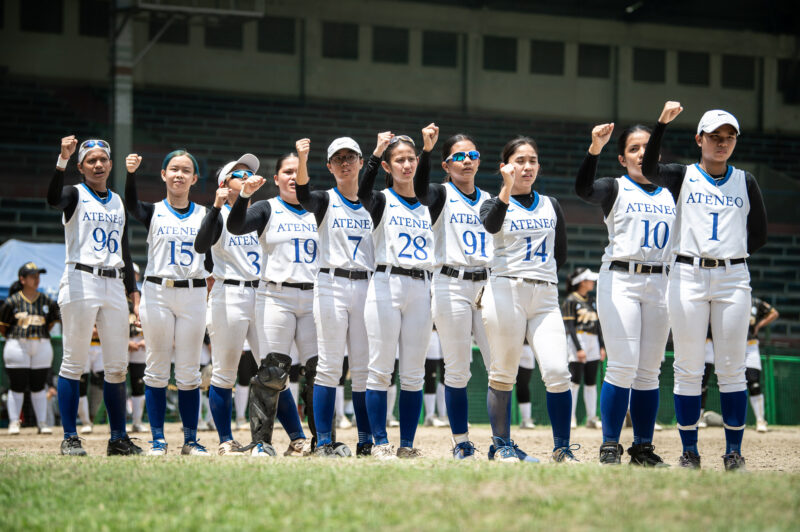Nearly three weeks after the Mamasapano clash that left 65 people—elite police, rebels and civilians—dead, Ateneo faculty members gathered last February 13 for a forum to discuss the context of the encounter.
Held in Escaler Hall, it was also in response to Fr. Jose Ramon Villarin, SJ’s call to “organize gatherings that will help us understand and appreciate historical and social justice contexts of the conflicts that remain unsolved.”
Alongside the ongoing investigations to provide further information on the clash, efforts in maintaining order and saving the peace in Mindanao have been made. One of these efforts is the forum, which determined to deconstruct the issue for better understanding.
The peace process
Having spent almost two decades living in Mindanao, Fr. Albert “Paring Bert” Alejo, SJ, shared his experiences in the peace process. As a member of the crisis management committee in Zamboanga, he is not unfamiliar to the danger of armed movements and shared “waking up to firing” during the September of 2013 siege.
Alejo had also related the effects of the clash to the flaws in the Bangsamoro Basic Law (BBL).
He indicated that the BBL is “not inclusive enough” of non-Moro indigenous peoples (IPs), who want to be excluded from Bangsamoro territory. Alejo opined that it is important to consider the Indigenous Peoples Rights Act (IPRA) in finalizing the BBL. The IPRA would give IPs the “right to self-determination” and right to their ancestral domains, among others.
Regarding the misunderstanding between terrorists and insurgents, he asked for people to continue pushing for the law’s improvement and, eventually, approval. “We need to empower the people who are able to negotiate…the leaders of the group who are willing to sit down and negotiate,” he said.
By this, Alejo meant the Moro Islamic Liberation Front (MILF). In 2012, the MILF signed with the government the historic Framework Agreement on the Bangsamoro, which would have granted the Bangsamoro region an autonomous political entity. After the clash, however, the agreement has come under fire. Still, Alejo emphasized the need for dialogue with the MILF as they have had their “own experiences of pain.”
The MILF had published an editorial on their website emphasizing that, since 2012, they had not had encounters with government forces due to the ceasefire agreement. However, “the law of the hour was to shoot or be shot at” during the clash.
In an Oxfam article, Bai Puti Kusain, a 37-year-old mother, said that she could no longer work in her farm for fear of dormant grenades suddenly exploding. Her story and other Moro women’s stories were part of “Tingog Mamasapano (Voices from Mamasapano),” an activity organized by women who are “sharing their stories and raising their voices in solidarity with all the families that have lost loved ones during the conflict.”
Alejo had worked with fellow missionaries, specifically the bishops, in conducting public consultations called “Konsult Mindanao” with Moros and non-Moros alike. After the consultations, they had proposed the 6 S’s to help with mending the “social fabric”–sincerity, security, sensitivity, solidarity, spirituality and sustainability.
The process stressed the coordination of peace talks with sectors involved and in crafting common agenda. It is also in aid of developing a different discourse aside from “hurting each other in textbooks and newspapers.” Most importantly, it focuses on forming a spiritual common ground by beginning peace talks with a prayer and making peace not limited to “politicians, academics, or those who can write history.”
Not security but governance
The absence of peace in Mindanao is a problem not of security but of governance, according to Rappler CEO Maria Ressa.
Ressa, another invited speaker and a journalist who has long investigated Southeast Asian terrorist networks, said that Jolo and Basilan have become havens for terrorists because of the failure to establish “[credible] governance” in such areas.
These areas have the potential to become what Ressa referred to as “seams of lawlessness,” where private armed groups like the MILF have held de facto law and order.
“The reason why the government was negotiating with the MILF is because it was able to create Sharia law… a form of governance that had credibility with the people in that area,” Ressa said. “That is a reality we forget.”
After the MILF’s alleged coddling of Marwan, however, politicians have expressed their reservations regarding negotiations, with Senator Alan Peter Cayetano even tagging the MILF as a terrorist organization.
Ressa said that Marwan’s apparent links with the MILF should be understood in relation to the ties among armed groups in Mindanao. In her three-part series on Rappler titled “Marwan’s ties that bind,” Ressa illustrates how Marwan had links not just with the MILF but also the Abu Sayyaf and the Moro National Liberation Front.
“They are family and friends—they help each other.” She added that there is “willful blindness” among these groups to cover for each other. “If you are told not to shelter your relatives, will you follow?”
In the end, Ressa said, what must be considered is the radical ideology spreading among these groups. And the spread of this ideology, she added, puts the Southern Philippines at risk of creating a “sanctuary” for terrorists and weakening, even more, the already loose hold the MILF has on the areas.
“In order for development to happen, in order for good governance to happen, we do need peace and security,“ Ressa said. “[If] we cannot win the war, then hopefully we will have enough enlightened self-interests to realize that a war in Mindanao will not benefit anyone— neither Christians nor Muslims.”
“We don’t belong in this war”
Islamophobia is growing in the Philippines, Moro youth Abdul Hakeem said during the forum. Hakeem, relaying his experiences of being bullied for being Muslim, said “the lack of education is what drives people to Islamophobia.”
He called on the media to facilitate discourse to counter hate directed at Muslims. “Media, please help us, we don’t belong in this war,” he said. “We are Muslim Filipinos. We [also] want to be branded as [Filipinos].”
However, the same cannot be said for non-Moro ethnolinguistic groups also caught in the political crossfire.
Of this, Alejo said, “After a while, [you realize that] we still have to live with each other.” Concerns of autonomy and territory, Alejo believes, can be solved through sincere dialogue. He further emphasized, instead, the importance of mending the social fabric.
“I hope we can participate in a peace communication. Let’s try to look for words that heal,” Alejo said.




